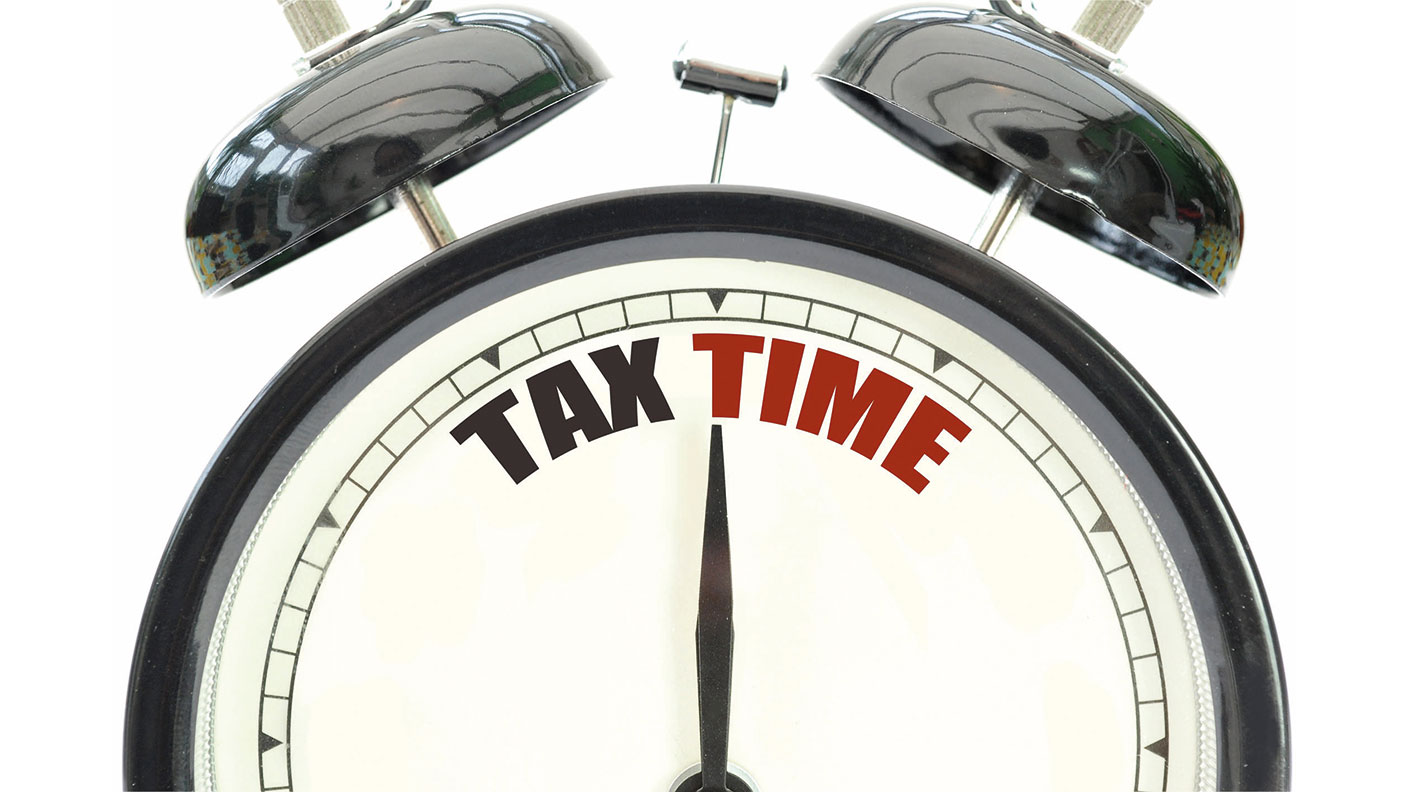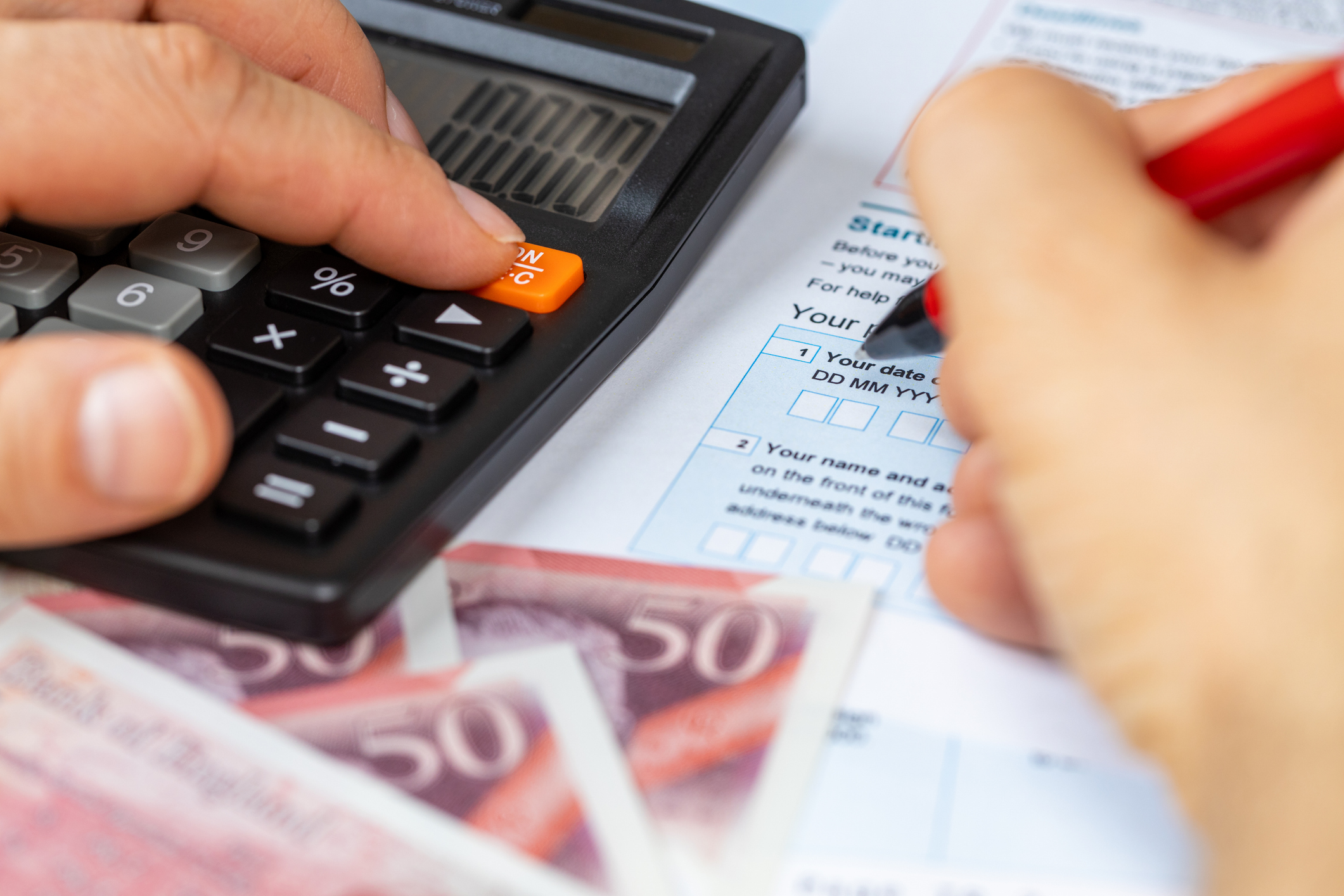Tax return deadline extended – but don't forget to file
HMRC is being slightly more lenient about tax returns this year, but falling behind will still incur hefty fines.


Get the latest financial news, insights and expert analysis from our award-winning MoneyWeek team, to help you understand what really matters when it comes to your finances.
You are now subscribed
Your newsletter sign-up was successful
Want to add more newsletters?

Twice daily
MoneyWeek
Get the latest financial news, insights and expert analysis from our award-winning MoneyWeek team, to help you understand what really matters when it comes to your finances.

Four times a week
Look After My Bills
Sign up to our free money-saving newsletter, filled with the latest news and expert advice to help you find the best tips and deals for managing your bills. Start saving today!
With just over a week left until the end of January, many of us are thinking about our tax returns. But this year you have a bit more time to sort out your taxes because HMRC has extended the deadline.
In normal years you have until 31 January to file your tax return, but this year the taxman has pushed the date back to 28 February. However, that doesn’t mean you should wait. Not filing until February could still cost you money.
The new deadline for submitting your tax return
In recent weeks, HMRC has come under increasing pressure to extend the deadline for submitting 2020-2021 tax returns, because the Covid-19 pandemic has left many people struggling to complete their accounts. Accountancy firms have reported “widespread staff shortages caused by the spread of Omicron”, says Harry Brennan in The Daily Telegraph. “They said this was making it impossible for professionals to meet the cut off date, meaning taxpayers faced being unfairly punished for their accountants being off sick.”
MoneyWeek
Subscribe to MoneyWeek today and get your first six magazine issues absolutely FREE

Sign up to Money Morning
Don't miss the latest investment and personal finances news, market analysis, plus money-saving tips with our free twice-daily newsletter
Don't miss the latest investment and personal finances news, market analysis, plus money-saving tips with our free twice-daily newsletter
Missing the 31 January deadline usually results in an instant £100 fine, plus additional penalties that can leave you owing thousands more. However, HMRC has announced that you won’t face a late filing penalty this year if you submit your tax return online by 28 February.
The end of January also usually marks the deadline for paying any tax due, but this is being extended as well. You won’t face a late-payment penalty provided you pay your bill or set up a “time to pay” arrangement by 1 April. The latter is a new system HMRC brought in to recognise that people could struggle to pay their bills if the pandemic lockdowns affected their income. Under the “time to pay” rules anyone owing up to £30,000 can arrange to pay what they owe in instalments.
You own't be fined, but you’ll still pay interest
However, HMRC isn’t giving you a completely free ride. You won’t pay any penalties if you miss the 31 January deadline for paying your tax bill, but HMRC will start charging interest on anything you owe at a rate of 2.75% from 1 February. So if you can get your tax return filed and your bill paid by the usual end of January deadline, you should make sure you do so.
If you miss the new 28 February deadline, you will immediately be fined £100. After that, £10 a day is added up to a maximum of 90 days. Anyone who is more than six months late in filing will pay the higher of either £300 or 5% of the tax due. If you are a year late filing your tax return HMRC could fine you 100% of the bill.
Still, while you should try to file this month, the benefit of having until 28 February to file without fines is that you don’t need to panic if you’re struggling. Taking the time to get things right could mean you avoid a hefty unexpected bill. HMRC will fine you up to 30% of your bill for careless mistakes, rising to 100% if it thinks the error is deliberate.
Don’t forget Covid-19 loans
It’s particularly important to make sure you understand the rules surrounding any coronavirus-related government handouts you may have received. This is the first year that taxpayers will need to include any Covid-19 support, such as money from the self-employment income support scheme or business support grants. Any payments received through these schemes are subject to income tax, so you need to declare them on your tax return.
“The fact that the Covid-19 support payments are taxable has come as a shock to many and has resulted in unexpected tax bills,” says Michelle Denny-West, a tax partner at the accountancy firm Moore Kingston Smith in The Times.
There are new sections on the tax return where you will need to give details of any Covid-19 loans, grants or payments you received. The money received through these grants will be added to your overall income and taxed accordingly.
Get the latest financial news, insights and expert analysis from our award-winning MoneyWeek team, to help you understand what really matters when it comes to your finances.

Ruth Jackson-Kirby is a freelance personal finance journalist with 17 years’ experience, writing about everything from savings accounts and credit cards to pensions, property and pet insurance.
-
 Should you buy an active ETF?
Should you buy an active ETF?ETFs are often mischaracterised as passive products, but they can be a convenient way to add active management to your portfolio
-
 Power up your pension before 5 April – easy ways to save before the tax year end
Power up your pension before 5 April – easy ways to save before the tax year endWith the end of the tax year looming, pension savers currently have a window to review and maximise what’s going into their retirement funds – we look at how
-
 Why it might be time to switch your pension strategy
Why it might be time to switch your pension strategyYour pension strategy may need tweaking – with many pension experts now arguing that 75 should be the pivotal age in your retirement planning.
-
 Rachel Reeves is rediscovering the Laffer curve
Rachel Reeves is rediscovering the Laffer curveOpinion If you keep raising taxes, at some point, you start to bring in less revenue. Rachel Reeves has shown the way, says Matthew Lynn
-
 ISA reforms will destroy the last relic of the Thatcher era
ISA reforms will destroy the last relic of the Thatcher eraOpinion With the ISA under attack, the Labour government has now started to destroy the last relic of the Thatcher era, returning the economy to the dysfunctional 1970s
-
 Investing in forestry: a tax-efficient way to grow your wealth
Investing in forestry: a tax-efficient way to grow your wealthRecord sums are pouring into forestry funds. It makes sense to join the rush, says David Prosser
-
 Two million taxpayers to be hit by £100k tax trap by 2026/27
Two million taxpayers to be hit by £100k tax trap by 2026/27Frozen thresholds mean more people than ever are set to pay an effective income tax rate of 60% as their earnings increase beyond £100,000. We look at why, as well as how you can avoid being caught in the trap.
-
 'Expect more policy U-turns from Keir Starmer'
'Expect more policy U-turns from Keir Starmer'Opinion Keir Starmer’s government quickly changes its mind as soon as it runs into any opposition. It isn't hard to work out where the next U-turns will come from
-
 13 tax changes in 2026 – which taxes are going up?
13 tax changes in 2026 – which taxes are going up?As 2026 gets underway, we look at what lies ahead in terms of changes to tax rates and allowances this year and how it will affect you.
-
 Why pension transfers are so tricky
Why pension transfers are so trickyInvestors could lose out when they do a pension transfer, as the process is fraught with risk and requires advice, says David Prosser